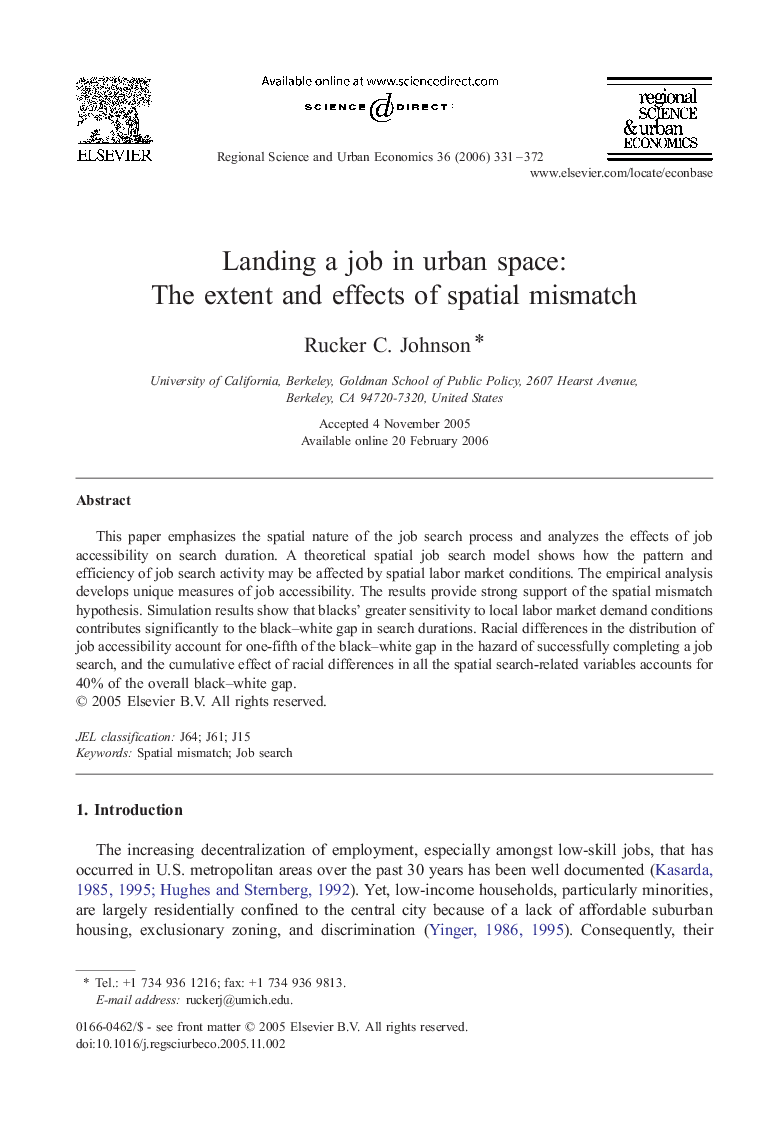| Article ID | Journal | Published Year | Pages | File Type |
|---|---|---|---|---|
| 984167 | Regional Science and Urban Economics | 2006 | 42 Pages |
This paper emphasizes the spatial nature of the job search process and analyzes the effects of job accessibility on search duration. A theoretical spatial job search model shows how the pattern and efficiency of job search activity may be affected by spatial labor market conditions. The empirical analysis develops unique measures of job accessibility. The results provide strong support of the spatial mismatch hypothesis. Simulation results show that blacks' greater sensitivity to local labor market demand conditions contributes significantly to the black–white gap in search durations. Racial differences in the distribution of job accessibility account for one-fifth of the black–white gap in the hazard of successfully completing a job search, and the cumulative effect of racial differences in all the spatial search-related variables accounts for 40% of the overall black–white gap.
